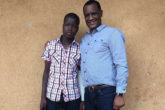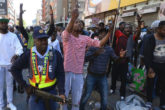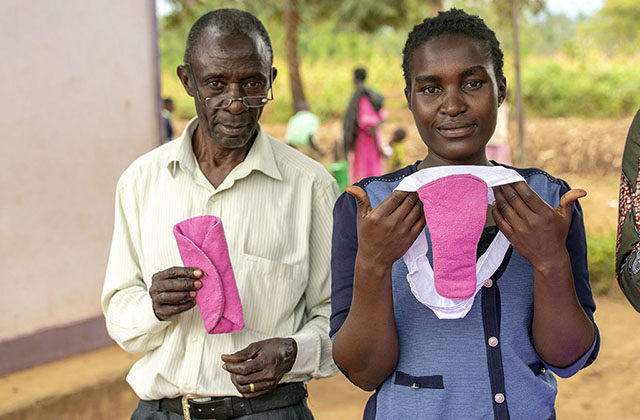
While menstruation is still a taboo subject, especially amongst men, those in Mbale have began to change their own perspective on periods following what they’ve been taught. PHOTO: Caroline Mwinemwesigwa/Compassion International
A report by Build Africa detailed earlier this year how menstruation has become one of the leading contributors to the school dropout rate among girls in Uganda.
On average, the report stipulated that out of the 80 days allocated to a school term, 29.7 percent of the adolescent girls said they miss a minimum of four days per cycle. This, the report said, also includes examination days, important class presentations and the introduction of new topics.
Uganda Christian News has learnt of a local church in Mulatsi Village, Bunashimolo parish, Bukyiende subcountry in Mbale district that has not only helped to raise awareness of period poverty but also provided a solution for the girls it affects
Compassion International reports that the Church held a meeting where the lack of feminine hygiene items was identified as the biggest problem by the local community.
Many of the women shared about the difficulties they faced without being able to afford pads.
One woman told the Compassion project director at the Mulatsi Child Development Centre, “we use newspapers; another, rugs; another, cloth from old blankets; and still another said they cut off part of an old mattress.”
The Mulatsi church came up with a solution – to train the local community to make re-usable sanitary towels.
One set of seven towels can be made for about Ush5,500 and will last an entire year. The church received the support it needed through Compassion International to train the community.
The Compassion project staff trained beneficiaries and their parents on how to make sanitary towels for themselves. But they didn’t stop there. The teaching was extended to three local schools where they instructed both male and female students as well as the local village leaders and all church members in the parish.
Everybody who received training was asked to train others to keep the education rippling across the region. And as a result, caregivers including men found a new source of income.
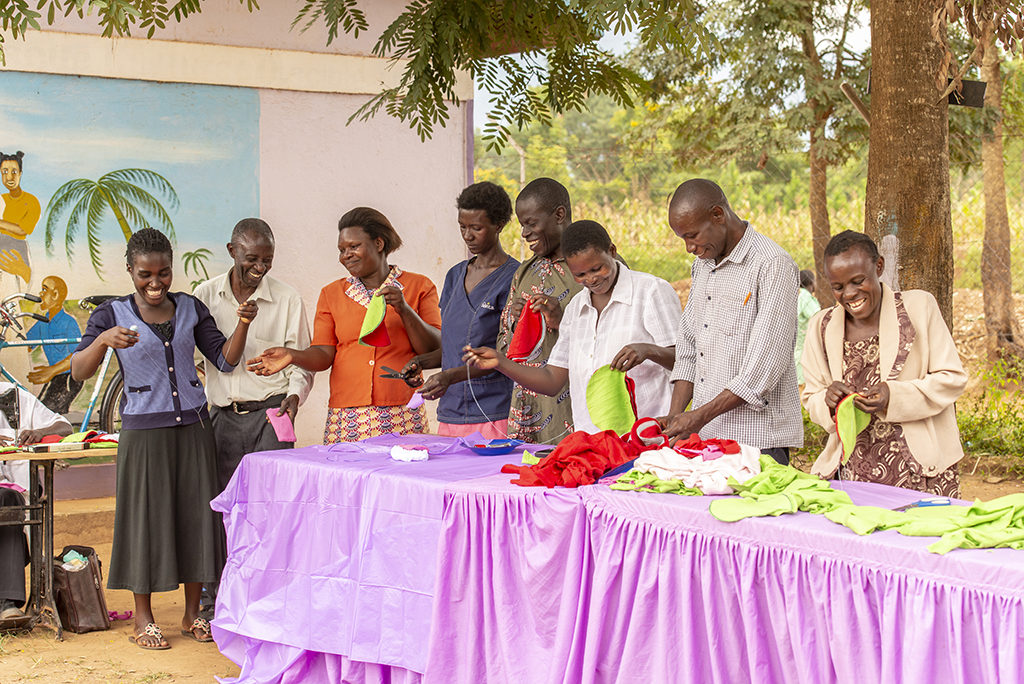
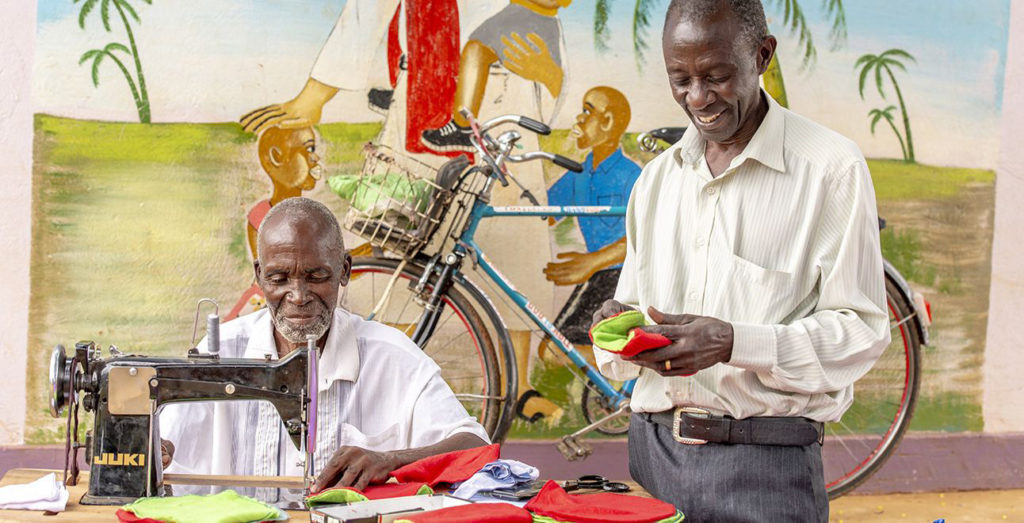
“Boys and men can be important sources of support in the fight to end period poverty but in Uganda, men often regarded menstruation as a subject not to be openly discussed,” Compassion International said in its report.
(A one) Milton, father to a Compassion-sponsored girl in Mulatsi, told the organisation, “I thought it was not proper for a girl to talk to me about sanitary towels. I have a 16-year-old, when she would come to me, I would refer her to her mother.”
But his perspective began to change as a result of learning how to make sanitary napkins.
“After the training, I realised that as a father I should learn how to make these sanitary towels. It has also helped me because now I make them and even sell them and get money to do other things. Before I couldn’t provide them, so they would use old mattresses and fold in the cloth, but I discovered that it was unhygienic and [why] the mother often fell sick.” he said.
Milton persevered in his new business despite being looked down upon by other men. “In the beginning it was shameful before the men in the community, but to me I found it useful. But I have now educated other men. I think it was from a traditional background because our fathers would defer to the mothers but later I discovered the tradition doesn’t help,” he said.
According to Compassion International, the ability to look after one’s personal hygiene and health during a period shouldn’t be a privilege; it’s a basic human right.
